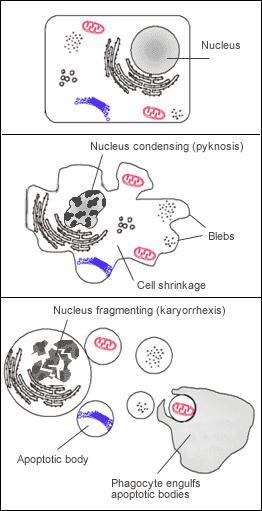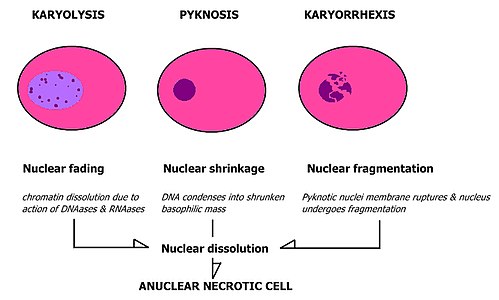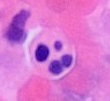Karyorrhexis (from Greek κάρυον karyon 'kernel, seed, nucleus' and ῥῆξις rhexis 'bursting') is the destructive fragmentation of the nucleus of a dying cell[1] whereby its chromatin is distributed irregularly throughout the cytoplasm.[2] It is usually preceded by pyknosis and can occur as a result of either programmed cell death (apoptosis), cellular senescence, or necrosis.

In apoptosis, the cleavage of DNA is done by Ca2+ and Mg2+ -dependent endonucleases.
-
Morphological characteristics of pyknosis and other forms of nuclear destruction.
-
Microscopy of an apoptotic neutrophil with nuclear fragmentation (H&E stain)
See also
editReferences
edit- ^ Zamzami N, Kroemer G (1999). "Apoptosis: Condensed matter in cell death". Nature. 401 (127): 127–8. Bibcode:1999Natur.401..127Z. doi:10.1038/43591. PMID 10490018. S2CID 36673000.
- ^ Advances in Mutagenesis Research. Springer Science & Business Media. 2012. p. 11. ISBN 9783642781933. Retrieved 11 November 2017.

